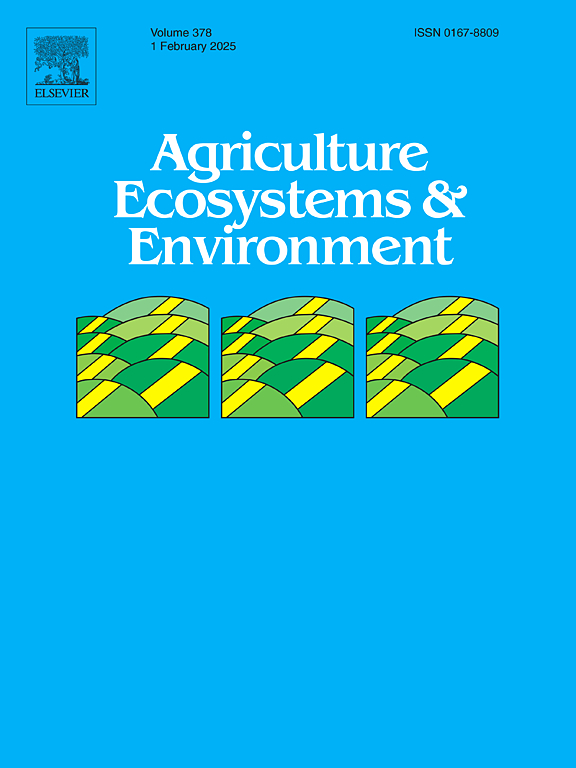从土壤健康到茶叶风味:有机肥增强微生物群落和香气化合物
IF 6.4
1区 农林科学
Q1 AGRICULTURE, MULTIDISCIPLINARY
引用次数: 0
摘要
茶园过度使用合成肥料导致土壤酸化、退化和环境问题,提高了对可持续替代品的需求。通过对照(CK)、纯化肥(NPK)、鸡粪(CM)和油菜籽饼(RC) 4种处理,研究有机肥施用对土壤微生物群落、茶叶香气和产量的影响。结果表明,有机肥处理(CM和RC)显著改善了土壤理化性质,包括pH值、土壤有机碳(SOC)和速效氮(包括矿质氮和活性有机氮),缓解了氮磷钾处理引起的土壤酸化。有机肥也增加了微生物多样性,改变了细菌和真菌群落的组成,其中RC处理显示出最明显的微生物特征。RC处理显著改善了茶叶的香气指标,尤其是香叶醇和芳樟醇,这与土壤性质和微生物群落的变化有关。此外,我们的研究反映了茶的香气可以被间接影响,细菌群落的变化似乎对这些香气的变化有更明显的影响。这些结果表明,有机肥,特别是油菜籽饼,可以改善茶叶香气和土壤健康,为茶园提供了一种可持续的替代合成肥料的方法。本文章由计算机程序翻译,如有差异,请以英文原文为准。
From soil health to tea flavour: Organic fertilisation enhances microbial communities and aroma compounds
The excessive use of synthetic fertilisers in tea plantations has led to soil acidification, degradation, and environmental concerns, raising the need for sustainable alternatives. This study investigated the effects of organic fertiliser application on soil microbial communities, tea aroma, and yield through a 7-year field trial with four treatments: control (CK), pure chemical fertiliser (NPK), chicken manure (CM), and rapeseed cake (RC). Results showed that organic fertiliser treatments (CM and RC) significantly improved soil physicochemical properties, including pH, soil organic carbon (SOC), and available nitrogen (including mineral nitrogen and labile organic nitrogen) while alleviating soil acidification caused by NPK treatment. Organic fertilisers also enhanced microbial diversity and altered the composition of bacterial and fungal communities, with RC treatment showed the most distinct microbial profiles. Tea aroma indices, particularly geraniol and linalool, were significantly improved under RC treatment, correlating with changes in soil properties and microbial communities. Moreover, our study reflected that tea aroma can be indirectly influenced, and variations in the bacterial community appear to have a more pronounced effect on these changes in aroma. These findings suggested that organic fertilisers, especially rapeseed cake, can improve tea aroma and soil health, providing a sustainable alternative to synthetic fertilisers in tea plantations.
求助全文
通过发布文献求助,成功后即可免费获取论文全文。
去求助
来源期刊

Agriculture, Ecosystems & Environment
环境科学-环境科学
CiteScore
11.70
自引率
9.10%
发文量
392
审稿时长
26 days
期刊介绍:
Agriculture, Ecosystems and Environment publishes scientific articles dealing with the interface between agroecosystems and the natural environment, specifically how agriculture influences the environment and how changes in that environment impact agroecosystems. Preference is given to papers from experimental and observational research at the field, system or landscape level, from studies that enhance our understanding of processes using data-based biophysical modelling, and papers that bridge scientific disciplines and integrate knowledge. All papers should be placed in an international or wide comparative context.
 求助内容:
求助内容: 应助结果提醒方式:
应助结果提醒方式:


